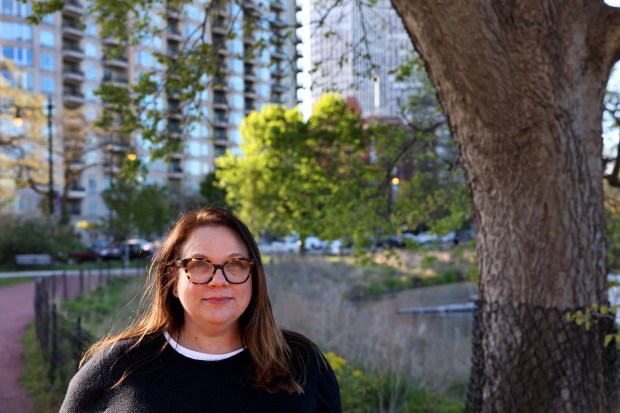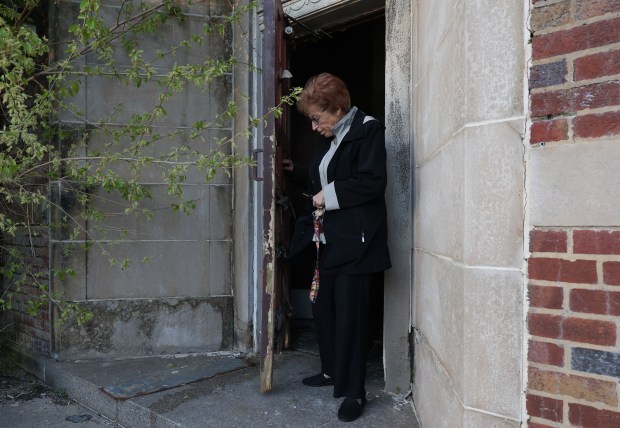In the six years since a team of Chicago Police officers incorrectly served a search warrant at the Near West Side home of social worker Anjanette Young, the use of residential search warrants has plummeted, police officials said this week.
CPD officers last year executed 210 residential search warrants — an 84% decrease from 2019, the year of the Young raid, when officers used residential search warrants nearly 1,400 times, according to figures provided by CPD.
The sharp drop-off comes as the CPD continues to develop and refine procedures on search warrants. Meanwhile, serious crimes across the city — murders, nonfatal shootings, robberies and car thefts — continue on a downward trajectory, in keeping with national trends.
“There (are) a lot more measures around making sure that these search warrants are checked, double-checked, triple-checked,” CPD Superintendent Larry Snelling said in an interview this week with the Tribune. “There are layers of approval that weren’t there before, and we just want to ensure that all of our officers are out there doing this the right way.”
In 2022, the city’s consent decree mandating reform was expanded to include search warrant provisions. And while search warrants — an invaluable tool for investigators seeking to disrupt illegal narcotics and firearms dealing — are now mostly carried out by officers assigned to CPD’s Bureau of Counterterrorism, all sworn officers will soon receive additional training on search warrants.
“We’re also going to look at those who actually develop, approve and serve the search warrants, and they’re going to get additional training,” CPD Lt. Michael Kapustianyk, of the department’s Research and Development Division, told the Tribune. “Not only in the policy, in the development, in the investigation and approval processes and how to develop a search warrant … but there’s also going to be tactical training with an emphasis on minimizing trauma, minimizing harm, and tactics and efforts to serve a search warrant, (and) the application of actually serving a search warrant.”
Even before the raid on Young’s home, CPD’s search warrant executions were the subjects of several federal lawsuits that alleged civil rights abuses.
Going forward, officers assigned to CPD SWAT will still be allowed to enter a target residence without knocking first. Other officers, though, will require approval from a CPD bureau chief to make such entries. Also, more stringent safeguards around the use of “John Doe” informants, documentation of previous cooperation and the accuracy of information provided, will be standard protocol. A CPD lieutenant and sergeant will each be present for residential search warrant executions, as well.
The February 2019 search of Young’s home, and the subsequent release of body-worn camera footage, enraged scores of Chicagoans who saw a team of officers enter Young’s home while she was undressed. The female officer on the scene, the late Ella French who was killed in the line of duty about two years later, allowed Young to cover herself while the officers figured out that they were in the wrong place.
The search, led by a sergeant not typically assigned to that unit, was sparked by a tip from a “John Doe” informant that an illegal gun was in the residence. That informant, records show, was the same man who was arrested in 2022 after he was seen throwing a bundle of heroin from a car owned by CPD’s current First Deputy Superintendent, Yolanda Talley.
That sergeant was later fired by the Chicago Police Board and his appeal was rejected by a Cook County judge. The former CPD sergeant now works for a police department in the northwest suburbs, according to state law enforcement records.




